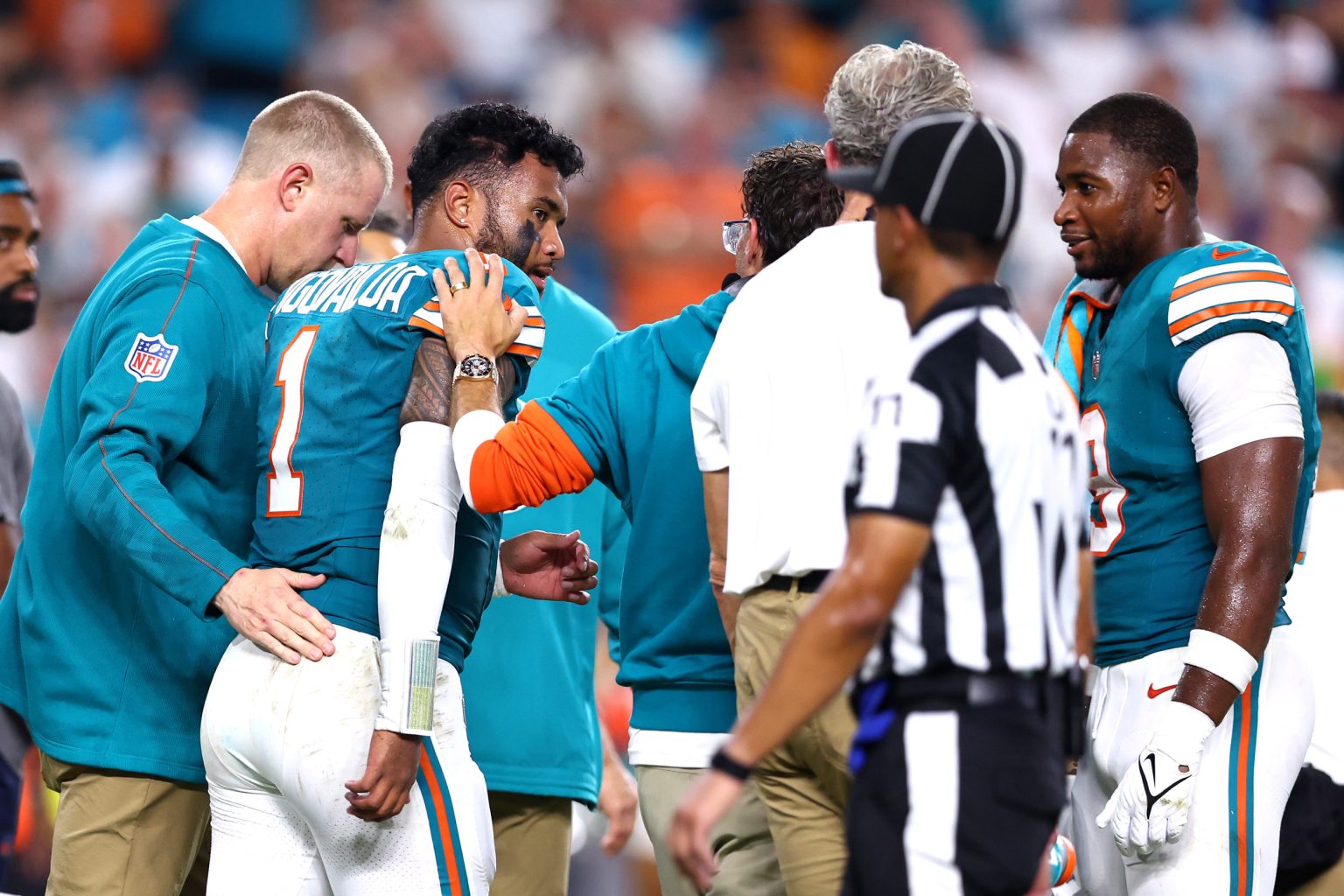Miami Dolphins quarterback Tua Tagovailoa will be meeting with neurologists this week to discuss his condition following a concussion sustained in a recent game against the Buffalo Bills. At 26 years old, Tagovailoa has no plans to retire and remains committed to playing football. This meeting with neurologists will provide more information about his condition and help him make an informed decision about his future in the NFL.
During the Week 2 matchup against the Bills, Tagovailoa suffered his third career concussion after colliding with a defensive player while trying to secure a first down. This raises concerns about his long-term health and safety as a quarterback in the NFL. Despite the risks associated with concussions, Tagovailoa has not expressed any intentions of retiring and still aims to continue playing the game he loves.
Miami Dolphins are supporting Tagovailoa in his decision-making process and are giving him the time he needs to consult with medical experts. Head coach Mike McDaniel has named Skylar Thompson as the expected starter for their upcoming game against the Seattle Seahawks, indicating that the team is prepared to move forward without Tagovailoa if necessary. However, there have been no discussions about finding a replacement for Tagovailoa at this point.
While there has been speculation about potential replacements for Tagovailoa, such as retired quarterback Tom Brady, the Dolphins organization remains focused on Tagovailoa’s well-being and allowing him to make the decision that is best for his health and future. The outcome of the meeting with neurologists will play a crucial role in determining Tagovailoa’s next steps, whether that involves continuing his career or choosing to retire to protect his long-term health.
Tagovailoa’s situation highlights the challenges faced by NFL players who suffer multiple concussions during their careers. The quarterback’s history of concussions raises concerns about his future in a physically demanding sport known for its risks of head injuries. Ultimately, the decision rests on Tagovailoa and his willingness to prioritize his health and safety above his passion for the game.
As Tagovailoa meets with neurologists and receives expert advice on his condition, the football world eagerly awaits his decision on whether he will continue playing in the NFL. His determination to keep playing despite the risks associated with concussions underscores the competitive spirit of professional athletes while also raising important questions about the long-term impact of head injuries on players’ health and well-being.








